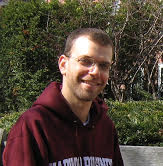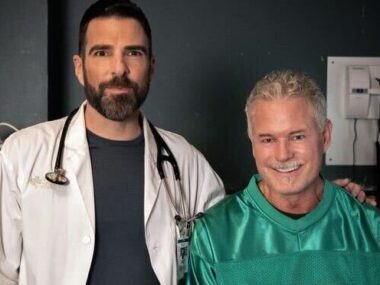Interview with Prize4Life and French Team That Won $1M Award for ‘Effective’ ALS Gene Therapy Approach
Written by |

Two French researchers, Martine Barkats and Maria-Grazia Biferi, are winners of the Avi Kremer ALS Treatment Prize, worth $1 million, for developing a gene therapy approach that shows promise in treating certain types of amyotrophic lateral sclerosis (ALS), Prize4Life announced in a recent press release.
The approach targets one of the most common causes of hereditary ALS, the SOD1 gene, and in a way that significantly extended survival and slowed disease progression in an ALS mouse model beyond any results previously reported, Prize4Life said.
“The winning team’s treatment is by far the most effective treatment ever seen by the ALS community in the SOD1 mice, which is the standard animal model in ALS,” Avi Kremer, founder of Prize4Life, said in an exclusive interview with ALS News Today. “I hope that, due to the prize and the attention around it, a drug company will license this treatment and bring it to human patients.”
Created to reward successful steps toward the discovery of new ALS treatments, the prize required that researches demonstrate at least a 25 percent improved lifespan in the mice model of SOD1, or superoxide dismutase, the first ALS-causing gene identified. This mutation is found in about 2 percent of all patients.
The researchers, with the Institute of Myology U974 INSERM UMPC in Paris, extended survival of treated adult mice by over 50 percent. Their approach to silencing SOD1 expression also significantly improved motor function, even after the mice began showing ALS symptoms.
Outcomes were “repeated by an independent group with many years of expertise in this area — the ALS Therapy Development Institute in Cambridge, [Massachusetts]” and confirmed, Dr. Adrian Ivinson, of the Scientific Advisory Board that judged the entries, said in the interview. “While SOD1 gene silencing therapies have been the focus of many research efforts, none have come close to the effectiveness demonstrated” by the French researchers.
“We think that this approach has shown some substantial improvements over preceding viral vector-based gene therapy approaches for SOD1-ALS and our team hopes to move forward with further advancing this therapy,” Biferi said. “Hopefully, through all the different approaches that are being taken to tackle SOD1-ALS, there will be eventually a therapy approved for treating patients that will significantly improve their lives.”
The researcher’s goal is to move this gene therapy into clinical trials, and to work with “the Prize4Life network to begin accelerating that process.”
Biferi also thinks the team’s approach could also be applied to other ALS-causing gene mutations, like C9orf72, and it plans to investigate that possibility.
Human trials are a way off, but continuing to advance the therapy is a priority, Ivinson said. “This sort of work is high risk and many such approaches fail. So while it is realistic to expect this work to advance, step-by-step, toward human trials, it is impossible to say if it will make it all the way. However … it would not advance to humans in the absence of these mouse experiments … [and] these results represent a critical step toward the eventual goal.
“Prize4Life is helping by introducing them to potential partners who have experience with the next steps, and will continue to do so in the months to come,” he added.
Prize4Life was founded in 2006 by Kremer, who was diagnosed with ALS at age 29. In his interview, Kremer highlighted how these discoveries — and their recognition by his group — impact his life, personally and professionally.
“First, as a patient, it will give me and my wife hope that I will be alive to see our 1-year-old daughter grow up, go to kindergarten, and learn to read and write. It will give newly diagnosed patients a reason to do all they can to live,” Kremer said. “Second, as a businessman, it is significant because drug companies will start to compete for the next effective treatment as we have seen on other orphan diseases. They will invest many millions in research and development, which will catapult the field forward.”
And, finally, “it is significant because more donations will go towards ALS non-profits, which means we will be able to support more research.”
Ongoing ALS work that Kremer said he is following with interest include the Phase 3 clinical trial (NCT02496767) underway into tirasemtiv, a potential skeletal muscle troponin being developed by Cytokinetics, and clinical testing of another potential treatment by Brainstorm Cell Therapies.
“In short, an effective treatment is the breakthrough that everyone has been waiting for,” Kremer said.






